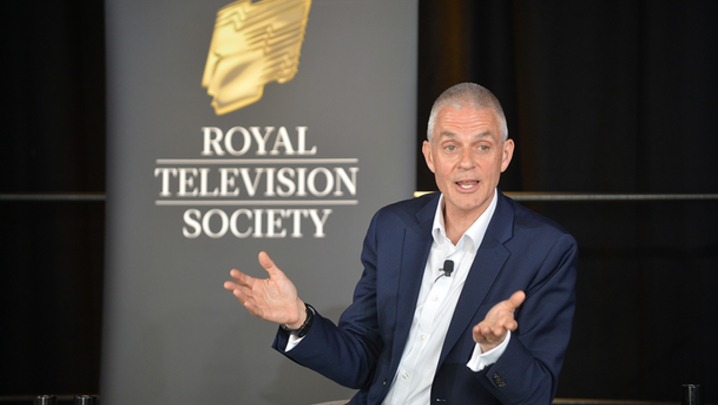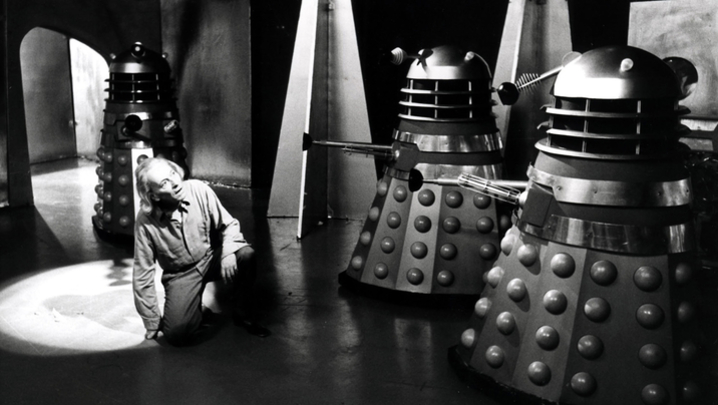As expectations around the return of Top Gear go into overdrive, Neil Midgley discovers the secret of rebooting old favourites
As the cost of failure in TV gets ever higher, particularly in drama, it is no surprise when commissioners turn to the past to fill tomorrow’s schedules. Some of these second-life shows become huge hits.
Poldark returned from 1975 to score as one of the biggest new dramas of 2015. Some reboots, such as Doctor Who, become such an established part of the TV landscape that it’s hard to believe they ever went away. Others, such as ITV’s revival of Stars in Their Eyes last year, misfire.
So what goes into reimagining an old favourite and what are the pitfalls to avoid?
“Expectations are incredibly high for Cold Feet, so I think the biggest challenge is to make something that moves the show forward and doesn’t wallow in previous glories,” says Kenton Allen, CEO of Big Talk Productions, the ITV-owned indie bringing the show back. “We know that it’ll attract a large audience for its first episode. How we retain those viewers across the next seven hours is obviously one of the things we talk about all day, every day.
“Ultimately, that has to be about the stories we tell. I think there will be a fascination to see where these characters are now, what they’re doing, and how their lives shine a torch on to our lives.”
For ITV and Big Talk, re-engaging Cold Feet’s writer, Mike Bullen, at the same time as doing deals with the main cast – Hermione Norris, James Nesbitt, Robert Bathurst, Fay Ripley and John Thomson – was a heroic exercise.
Those actors are now playing characters that they left behind 13 years ago. And they are now more fiftysomething than thirtysomething.
There is a reason why TV dramas, particularly those that are relationship-driven, tend to focus on characters in their twenties and thirties. That’s when human beings make and break relationships, have kids and forge careers. The lives of the middle-aged tend to be less, well, dramatic. Or, at least, they used to be.
“Times have changed, and 49-year-olds aren’t really in their slippers. Fifty is the new 40,” says Steve November, ITV’s former Director of Drama, who commissioned the Cold Feet revival. “These aren’t characters who feel old, they don’t feel sedate, they don’t feel like they’ve slowed down. And, actually, the stories come thick and fast.
“What we’ve got now – and hopefully this is something that will resonate with the generation of viewers who remember Cold Feet – is having ageing parents, who might be demanding, and having teenage kids.”
But no IVF this time around? “I wouldn’t rule that out, who knows?” laughs November. “I’m not saying ‘No’.”
Allen contests the notion that Cold Feet is, in fact, a “reboot”: this is, he says, just Series 6 of the show, albeit with a long gap since Series 5.
In the US, Fox has pulled a similar trick with The X-Files. Following a 14-year hiatus, the show returned with its original showrunner, Chris Carter, and its original stars, Gillian Anderson and David Duchovny.
“The fabulous chemistry between those two leads very much ran through this new series,” says Katie Keenan, Head of Acquisitions at Channel 5, which aired the new version in the UK. “But Carter had absolutely reinvented it for 15 years later – these post-9/11 times. It felt very on the money, in terms of the political state of the world as it stands, everything that’s happening in the US, the Middle East.”
And the viewers are out there: with a consolidated audience of 5.1 million, the first episode of the new X-Files gave Channel 5 its highest-rated drama ever.
Like Allen and November, Keenan doesn’t worry that her stars are 13 years less sexy than the last time sparks flew between them. “The chemistry on screen really crackled between them, as it did in the original series,” she says. “I think that something such as Cold Feet is a really different type of drama.
“The X-Files is, at its heart, a supernatural sci-fi horror piece, whereas Cold Feet is a much more emotional, relationship drama.”
For other dramas – such as Poldark – a return to the screen means a new cast and a new take on the original material. And in entertainment, reviving old formats can mean a relatively small twist – as with All Star Family Fortunes – or a stunning change, as with Through the Keyhole.
“Leigh Francis did a version of Through the Keyhole with his friends when he was a teenager – like, a spoof version of it. He used to make these videos and stuff,” says Talkback Managing Director Leon Wilson of the new, Keith Lemon-fronted show.
“He loved the format. Even before Celebrity Juice, he’d talked to ITV about bringing it back, called Through the Keith-hole.”
So Lemon was an obvious choice to turn Through the Keyhole from its old, cosy daytime incarnation into a post-watershed Saturday-night zoo.
But, says Wilson, very little about the actual format has changed. There are now two VTs for each celebrity house – with the first full of actual clues, and the second more of a skit. And Lemon does both studio presentation and the VTs, instead of handing over to a roving reporter. Aside from that, it’s much the same show.
"The biggest challenge is to make something that moves the show forward and doesn’t wallow in previous glories"
“We were very keen to get the right balance between the comedy and the playability,” says Wilson. “The playability still had to be there, so that old fans of the show could still enjoy it for what it was previously, and younger fans could get the comedy they’d expect from Keith.”
Not every ITV entertainment reboot, though, has followed that golden rule. Its 2015 revival of Stars in Their Eyes, presented with heavy irony by Harry Hill, flopped.
“Somebody thought that it was a good idea to have Harry Hill essentially send up the old show,” says Duncan Gray, a former Controller of Entertainment Commissioning at ITV. “Nobody paid any attention to what it was that people used to love about Stars in Their Eyes.
“You’d have a supermarket worker who could barely look you in the eye but, the second he walked through those doors as Neil Diamond, he became an utterly compelling performer. “There was a majesty and a dignity about the show – as well as a cheeky postmodernism if you wanted to look for it.”
Perhaps the most pressurised reboot currently in production in British TV is Top Gear. Chris Evans and his new team must step into the world-beating shoes of Jeremy Clarkson et al. The new incarnation lost its Executive Producer, Lisa Clark, at Christmas, and the BBC has now announced an awkward-sounding split between exec Clare Pizey as “editorial lead” and Evans as “creative lead”.
The team is in an unenviable position. On the one hand, they don’t want to alienate loyal fans but, on the other, they don’t want to be seen as simply copying Clarkson and co.
“I worry that it will all be a bit straight, because Clarkson, May and Hammond depended so much on their chemistry,” says Tiff Needell, a former Top Gear presenter, who now fronts ITV4’s Fifth Gear. “It could easily lose its edge. The cars will be lovely, the guests will be lovely, everything will be lovely.”
The new Top Gear team could do worse than listen to November’s advice to himself about bringing back Cold Feet: “You go back to a much-loved show, to some degree, at your peril.
“The risk of people not thanking you for screwing it up is probably just as big as, if not greater than, the risk of people thanking you for bringing it back.
“We can’t rest on the laurels of a much-loved series. We’ve got to deliver. This has to be really, really, really good.”






